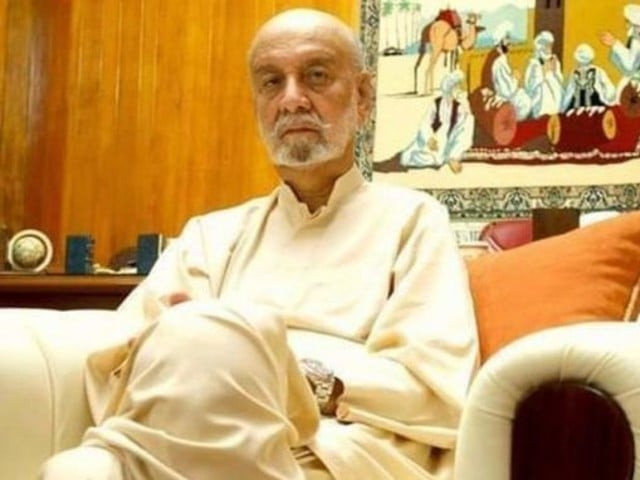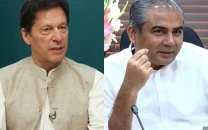Ataullah Mengal: a rare breed
Mengal, who passed away on September 2, 2021, had sought to abolish the tribal system

I once asked the late Rafi Raza, a former federal minister and special assistant to prime minister Zulfikar Ali Bhutto, what he thought of Ataullah Mengal. “For a major sardar, Mengal’s politics were surprisingly left-wing”, he replied. “He was intelligent, well grounded in his political views, honest and proud – a true representative of Balochistan. He was greatly admired by his Baloch colleagues, yet he had an all-Pakistan approach in his politics”.
Others, like Irshad Abdul Kadir, a barrister and novelist who had known Mengal since the 1950s through Khan Abdul Wali Khan, recall him as being soft-spoken, yet charismatic; reserved, yet eloquent.
“He had a personality and was a pleasing looking individual, even though he did not have the glamour of Akbar Bugti,” said Kadir. “He was very principled. That group of Baloch chiefs – Mengal, Marri, Mazari and Bugti – was very impressive. They were exceptional people. I don’t think I’ve come across that impressive a batch since then, which must have something to do with that background,” he added. “Mengal was very gentlemanly and correct with the ladies. There was nothing nasty, or unpleasant attached to him and he did not prescribe violence”.
Read more: Veteran Baloch leader Attaullah Mengal passes away
As the first elected chief minister of Balochistan, Mengal sought to abolish the sardari, jirga and tribal systems and introduce land reforms. A resolution was passed to this effect in the provincial assembly, but it never became a law. Ghous Baksh Bizenjo, who was the governor of Balochistan at the time, writes in his autobiography, In Search of Solutions, that president Bhutto was “hell-bent on subverting the National Awami Party government and getting rid of it as early as possible”.
During his tenure as chief minister, Mengal encouraged the freedom of speech and lifted all restrictions on the media. “The press in Balochistan enjoyed such freedom as had never been witnessed in any part of the country before”, according to Bizenjo, and the province became “an island of freedom in a sea of political inequalities”.
He allowed the exploitation of natural resources – including minerals – and put an end to private monopolies in the mining sector. Land and support were provided to pastoral tribes, and holdings of fewer than 12 acres were exempted from paying land revenue.
Unlike his fellow chieftains Bugti, Marri and Mazari, Mengal did not attend Aitcheson College and was instead educated in Karachi. In his memoir, A Journey to Disillusionment, Mazari describes him as being “blunt and outspoken” and having “scant regard for consequences”.
Mengal’s ancestral home, the town of Wadh, is located in a region historically referred to as Jhalawan. Today, it falls within the boundaries of Khuzdar district, but at the time of his birth, in 1929, the area was a part of Kalat State and administered by the Balochistan Agency.
According to Farhan Hanif Siddiqi, author of The Politics of Ethnicity in Pakistan (Routledge, 2015), “Since the 1930s, the torch of Baloch nationalism was carried forth by Kalat State and politically centred in the majority Brahui-speaking areas of Sarawan and Jhalawan.”
As a member of the National Assembly, Mengal was defiant of Ayub Khan’s leadership and the One Unit scheme. In 1962, he was arrested on charges of sedition after delivering an anti-government speech in Kakri Ground, Lyari.
The Ayub Khan regime went so far as to remove him as sardar of his tribe in an attempt to undermine his power and prestige. His cousin, Karam Khan Mengal, was installed as the new sardar by the government, but didn’t last long. Ten days after his appointment, he was murdered in his sleep. Ataullah, who had been released from prison, was arrested once again, along with his father Rasul Baksh Mengal and five tribesmen, for conspiring to assassinate Karam Khan.
In 1973, president Bhutto orchestrated a scenario that enabled him to replace the elected officials of Balochistan with individuals of his own choosing. Mengal was removed as chief minister after his government was unjustly accused of funneling weapons to separatists. In the military operation that followed, a severe food blockade was enforced in Jhalawan, among other areas, and the locals faced an acute shortage of medical supplies.
A day after Bhutto took oath as prime minister and the 1973 Constitution came into effect, the local leadership of the National Awami Party – Mengal, Marri and Bizenjo – was placed under arrest. While in prison, Mengal refused Bhutto’s attempts at reconciliation, insisting that he could not commit to a settlement without consulting his colleagues, or the tribesmen in the hills, who were suffering at the hands of the government. He would not be released until after General Ziaul Haq’s military coup.
In jail, Mengal received the news of the disappearance and probable murder of his 20-year-old son, Asadullah. He and a friend, Ahmed Shah Kurd, had been shot and abducted from outside the house of Balak Sher Mazari, a family friend, in Karachi. The two boys would never be seen again. Mazari describes the incident as a “commando-style attack”, claiming that Asadullah had been under watch of intelligence agencies.
Mengal’s involvement with the National Democratic Party (NDP) was brief, owing to fundamental ideological differences with the party leadership. He and Bizenjo pressed for a greater emphasis on the demand for provincial autonomy and a setup in which the Centre’s influence would be limited to foreign affairs, defence and currency. They also argued that the provinces should have the right to secede if treated unfairly.
While in self-imposed exile in London, Mengal founded the Sindhi Baloch Pashtun Front (SBPF) in 1985, along with Khalid Laghari, Hafeez Pirzada, Mumtaz Ali Bhutto and Afzal Bangash. With Khalid Laghari as its chairman and Mengal as a member principles committee, the movement called for decentralisation and a confederal structure, in which the provinces were autonomous and sovereign. According to its manifesto, “the elite of Punjab have joined its military and bureaucratic oligarchy to impose and extend its hegemony over the smaller nationalities… forcing them into individual struggles which have been ruthlessly crushed”.
However, he had little hope that the Baloch people would be granted their rights within the framework of Pakistan. He had, in fact, issued from London a declaration for an independent Balochistan. Lawrence Lifschultz, who interviewed him in 1983 for Economic and Political Weekly, wrote, “Mengal stated he has issued his declaration because a crucial turning point had finally been reached after three decades of violence”.
He declined offers by the PML-N to be made interim prime minister in 2012 and president of Pakistan in 2013. His son, Akhtar Mengal, currently heads the Balochistan National Party (BNP), which was founded in 1996.


















COMMENTS
Comments are moderated and generally will be posted if they are on-topic and not abusive.
For more information, please see our Comments FAQ